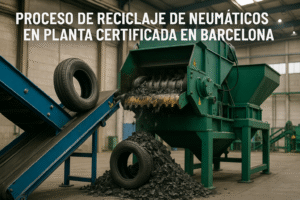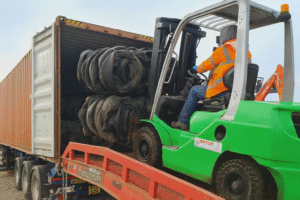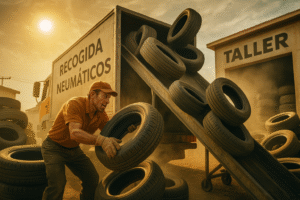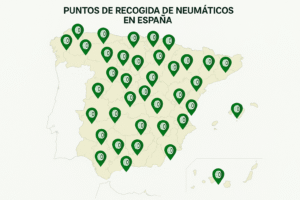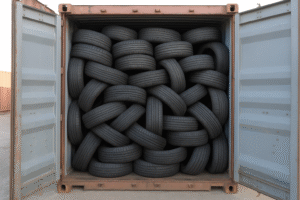Introduction
Tyre recycling in summer presents a set of unique challenges that should not be underestimated. High temperatures, increased demand for services, and risks linked to improper storage can turn waste into serious problems for workshops. In addition, heat and hazardous waste pose a threat to both health and workplace safety. In this article, we’ll explore the main difficulties of the summer season and share practical solutions for efficient, safe, and compliant waste management in workshops, especially regarding used tyre collection.
The Impact of Heat on Tyre Storage
During the hottest months, tyres stored outdoors or in poorly ventilated spaces can present significant risks. Heat and hazardous waste can lead to spontaneous fires or speed up rubber degradation, releasing toxic gases. That’s why it’s crucial to have covered, well-ventilated storage areas away from heat sources. Implementing safety protocols and regularly inspecting stock conditions is essential to reduce incidents during summer tyre recycling.
How to Optimise Waste Management in Workshops During Summer
Waste management in workshops during summer requires special measures. The accumulation of used tyres can increase due to the higher demand for repairs and services. To avoid overflow or health risks, it’s recommended to schedule frequent collections, keep waste separated, and use approved containers. Training staff on handling hazardous waste in hot conditions can make the difference between a safe environment and one prone to accidents.
Strategies for More Efficient Used Tyre Collection
A well-planned used tyre collection system reduces the risk of overflow in workshops and collection centres. In summer, demand can vary, so it’s advisable to coordinate collection dates in advance with authorised managers. Using digital tools for tracking and recording improves traceability and helps meet environmental regulations. This organisation makes summer tyre recycling more orderly and safe, benefiting both businesses and the environment.
Prevention and Control of Hazardous Waste in Hot Conditions
Heat and hazardous waste are a critical combination. In summer, the risk of fire or toxic substance emissions increases. To mitigate these risks, workshops must ensure that waste is correctly classified and kept away from flammable sources. Having fire extinguishers, temperature sensors, and emergency protocols in place can save lives. These best practices, combined with fast and efficient collection, ensure a safe working environment during periods of extreme heat.
Conclusion
Tyre recycling in summer requires special planning and proactive risk management. With proper waste management in workshops, well-organised used tyre collection, and measures against heat and hazardous waste, it’s possible to keep operations running smoothly.
Do you run a workshop or manage waste? Contact us to help optimise your collection and recycling system this summer.



